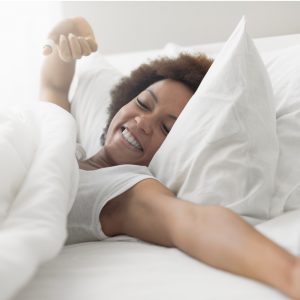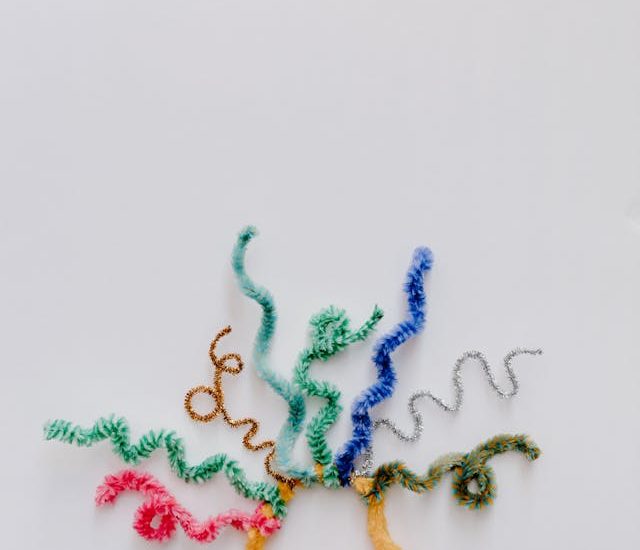Finding Sleep In A Sleepless World
 She rushed into the kitchen and reached for the steaming coffee pot. Smooth, dark hair hung loose about her shoulders, framing a strikingly beautiful face. Her long legs were lean and fit, accentuated by the patterned running tights and tank top she wore. She was the picture-perfect example of a successful high-school senior; straight-A student, National Honor Society member, a leader in running club, choir, and student government. But for one thing: those eyes…
She rushed into the kitchen and reached for the steaming coffee pot. Smooth, dark hair hung loose about her shoulders, framing a strikingly beautiful face. Her long legs were lean and fit, accentuated by the patterned running tights and tank top she wore. She was the picture-perfect example of a successful high-school senior; straight-A student, National Honor Society member, a leader in running club, choir, and student government. But for one thing: those eyes…
Her once-lovely brown eyes were increasingly bloodshot and haggard. As the high school years marched forward, she seemed to strive ever-harder for success and accomplishment, with exponentially increasing demands. Busy afternoons filled with extra-curricular activities to ensure an attractive college application resume, late nights studying to keep up her grades, early mornings to prepare the pretty face of social expectation. My joyful daughter had become a stressed-out, sleep-deprived, bleary-eyed, shell of the girl she had once been.
Research shows that my daughter is a typical high-school senior: a member of the most sleep-deprived population group in the US. According to the Child Mind Institute, only eight percent of American teens are getting the sleep they need, and most are clocking several hours less than what is needed for healthy brain and body development. Without the much-needed REM sleep, hormonal stress chemicals such as cortisol continue to rise in the teenage brain, and cognitive, emotional, and psychological skills suffer.
 Mid-May ’tis the season of final exams for many teens and young adults…and yet the cultural push to sleep less and study more may be undermining the very goals they are striving for. The Society for the Teaching of Psychology recently published an ‘Eight Hour Sleep Challenge’ research study that quite literally upended cultural perspectives on study versus sleep. While Mom chided me to stay up and study, science reveals that sleep could have been more effective for improving my exam grades: “The 8-hr sleep challenge provides proof of principle that many students can maintain optimal sleep while studying, without sacrificing test performance.” Perhaps the cultural taboo of laziness is undermining the importance of good sleep?
Mid-May ’tis the season of final exams for many teens and young adults…and yet the cultural push to sleep less and study more may be undermining the very goals they are striving for. The Society for the Teaching of Psychology recently published an ‘Eight Hour Sleep Challenge’ research study that quite literally upended cultural perspectives on study versus sleep. While Mom chided me to stay up and study, science reveals that sleep could have been more effective for improving my exam grades: “The 8-hr sleep challenge provides proof of principle that many students can maintain optimal sleep while studying, without sacrificing test performance.” Perhaps the cultural taboo of laziness is undermining the importance of good sleep?
This kind of research is all good and fine for teens and young adults, but what about the life stressors that gobble up sleep time as we age? The Journals of Gerontology report that quality and consistent sleep directly affects the psychological response of feelings such as positivity and effectiveness: “Multilevel models indicated that on days when older adults had higher sleep self-efficacy, more positive affect, and less negative affect, they also had more internal locus of control and higher perceived competence.” In other words, as a parent when I get healthy sleep I have a more positive outlook and perception of control over my chaotic life (and the chaotic life of my teen!).
 Perhaps even more compelling, the Journal of Neuroscience reports that adequate sleep mediates the impact of pain and helps alleviate the self-perpetuating problem of aging aches and pains. Scientist’s claim, “sleep deprivation enhances pain responsivity within the primary sensing regions of the brain’s cortex yet blunts activity in other regions that modulate pain processing, the striatum and insula; We further establish that even subtle night-to-night changes in sleep in a sample of the general population predict consequential day-to-day changes in pain.” While I personally want to get good sleep so I feel more positive about my teen, I’m equally motivated to get good sleep so I don’t feel so achy in my joints every evening! Scientific research continues to confirm that going to bed early and getting some healthy shut-eye can improve the quality of my life and help prepare me for the inevitable stressors that will come my way.
Perhaps even more compelling, the Journal of Neuroscience reports that adequate sleep mediates the impact of pain and helps alleviate the self-perpetuating problem of aging aches and pains. Scientist’s claim, “sleep deprivation enhances pain responsivity within the primary sensing regions of the brain’s cortex yet blunts activity in other regions that modulate pain processing, the striatum and insula; We further establish that even subtle night-to-night changes in sleep in a sample of the general population predict consequential day-to-day changes in pain.” While I personally want to get good sleep so I feel more positive about my teen, I’m equally motivated to get good sleep so I don’t feel so achy in my joints every evening! Scientific research continues to confirm that going to bed early and getting some healthy shut-eye can improve the quality of my life and help prepare me for the inevitable stressors that will come my way.
 Time to turn off the internet service, sip on a cup of chamomile tea, and get ready for bed. My example will help pave the way for my precious teenage daughter to make the same healthy choices. Perhaps she will be less stressed and better rested than I as a middle-aged mom. Science has me convinced: As for me and my house, we shall be getting more sleep!
Time to turn off the internet service, sip on a cup of chamomile tea, and get ready for bed. My example will help pave the way for my precious teenage daughter to make the same healthy choices. Perhaps she will be less stressed and better rested than I as a middle-aged mom. Science has me convinced: As for me and my house, we shall be getting more sleep!
MBJ
Check out the original research:
https://www.sleepfoundation.org/articles/infographic-sleep-modern-family
https://childmind.org/guide/parents-guide-to-teenagers-and-sleep/
https://www.pnas.org/content/116/7/2733
https://journals.sagepub.com/doi/10.1177/0098628318816142


